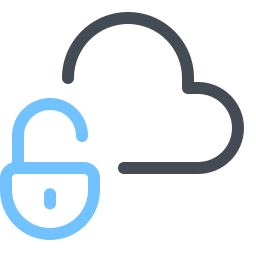
Cloud Computing
Flexibly scalable IT infrastructure powered by IT Global and hyperscaler clouds.
About Cloud computing
Cloud Computing services deliver information technology – including data storage, servers, networks, software, and monitoring solutions – over the Internet. Cloud infrastructure offers the benefit of scaling quickly on demand and has almost no hardware caps. Services can be managed through a browser. Cloud customers pay only for the resources that they use. They no longer need to purchase and maintain their own IT infrastructure.
Types of Clouds
Private Cloud
IT services are provisioned over private IT infrastructure for the dedicated use of a single organization either on premises or in cloud. The dedicated hardware is inaccessible to other customers. Private cloud offers high scalability, availability, and confidentiality.
public cloud
Customers consume computing resources from a shared pool. Public clouds take less time to deploy and scale when compared to a private cloud, and the customer pays only for consumed vCPU and vRAM.
hybrid cloud
Hybrid cloud uses a mix of on-premises and public cloud resources combined into a single infrastructure. This is convenient when there is an urgent need for additional resources, and renting cloud resources is more efficient in terms of cost, deployment speed, and performance. Hybrid cloud is also used for distributed data storage, with business-critical databases running on an on-premises system and non-critical service data moved to the cloud.
Key Use Cases
virtual data centers
It is a cheap and quick way to start a data center or a custom server room. Purchasing equipment is not required. The provider will allocate as many virtual servers as necessary. Physical servers can also be migrated to the cloud. Depending on business requirements, virtual infrastructure can be up-scaled and down-scaled on the go.
app development
Cloud infrastructure can be used to create a hardware and software environment for any kind of integration and testing processes (web apps, mobile apps, API apps, games, etc.).
data storage
Cloud storage offers both high security and availability, quick disk space addition, a wide range of storage types, and scheduled backups. It supports integration with any virtual equipment and software. Storage is accessible anywhere from any device.
data analytics
Multiprocessors offer in-memory and cloud computing capabilities where high performance is required, for instance, in predictive analytics. RAM calculations powered by multiprocessors deliver instant reports and predictions from analytical systems and Business Intelligence modules.
Cost Efficiency
Customers do not have to purchase, maintain, and update their own equipment, licenses, etc. Instead, they pay only for the cloud resources they consume. There is also no need for a large IT staff.
High Availability
The provider ensures that the services are available 24/7. The guaranteed availability — percentage per month or a longer period—is defined in the Service Level Agreement, or SLA. If the provider breaches the SLA, the customer will be paid a compensation.
Security
All customer data are stored in secured redundant storage systems which form a network of physical and virtual servers. All equipment is located in reliable data centers which have high disaster protection parameters, and all equipment, network links, and power supply are redundant.
Scalability
With cloud computing and flexibility enabled by virtualization, IT infrastructure can be scaled up and down as the business develops. Resources—such as disk space, vCPU, vRAM, VMs, and network interfaces—can be added or removed. All equipment used by cloud providers is high performance, Hi-End equipment.
Migration
Both small non-IT businesses and large enterprises can win from migrating to a cloud because of the benefits that it provides, such as high availability, high scalability, and cost efficiency. Infrastructure can be migrated to a cloud in its entirety or partially. Pre-migration testing options are also available to ensure that the links stay functional and there is no downtime. Even large infrastructures can be migrated to a cloud in a matter of a few days.
Expert Support
The provider ensures support throughout the life cycle of the project, from deployment to 24/7 support and maintenance. Customer services are supported not by one, but a whole team of qualified engineers.

Public Cloud
Quick and reliable way to deploy your own virtual server farm

PRIVATE CLOUD
Easily customized cloud infrastructure with high level control and security
